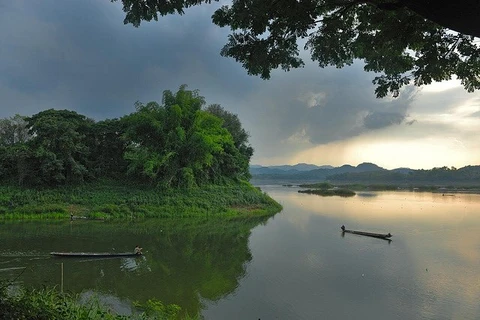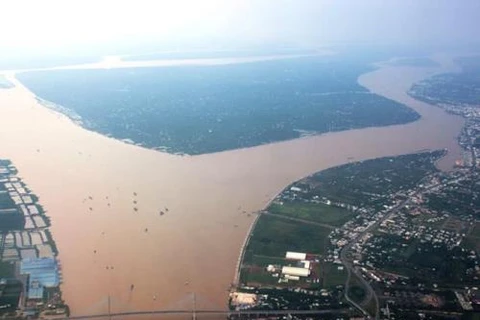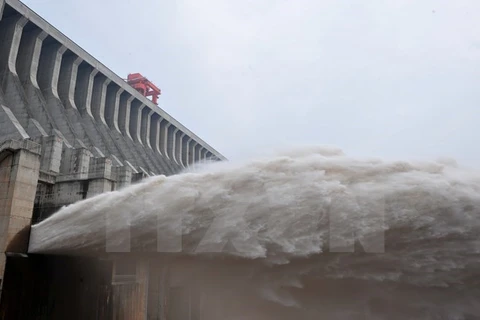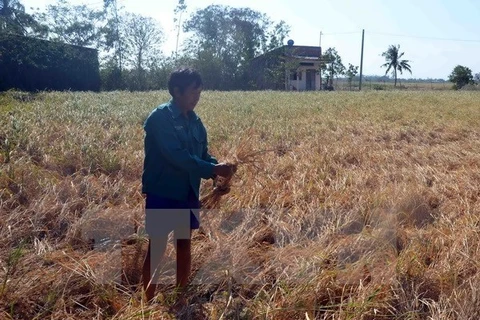 Professor Vo Tong Xuan talks about his suggestions to adapt to drought and saline intrusion during the conference (Source: VNA)
Professor Vo Tong Xuan talks about his suggestions to adapt to drought and saline intrusion during the conference (Source: VNA) Can Tho (VNA) – The worst drought ever recorded in Vietnam has prompted the government and the public to brainstorm strategies on using water sources intelligently for food security and poverty reduction.
At a conference titled “Sustainable Uses of Mekong Water Resources” organised at Can Tho University on April 22, leading agricultural expert Professor Vo Tong Xuan said that saline intrusion affected agricultural production in the lower Mekong River basin, putting paddy production at risk.
However, he said the challenges should be turned into opportunities by restructuring agriculture in the country, thereby improving farmers’ incomes.
Drought and saline intrusion could be seen a silver lining in the dark cloud, pushing the country to reorganise its irrigation system.
“The government needs to restructure its agricultural and food production in the Mekong Delta to make good use of limited fresh water and opportunities with marine water,” said Xuan.
“We have been successful in building irrigation systems bringing fresh water to paddy production for decades. Now, the government should have a comprehensive plan for farmers using saline water in shrimp cultivation,” Xuan said.
He said that if farmers continue with rice cultivation on saline farmland, they will continue to face poverty.
Areas not affected by marine water such as An Giang, Dong Thap provinces should be arranged for paddy cultivation with advanced technology, meeting requirements of food security.
He said the government should also develop irrigation systems for shrimp cultivation.
“If we see marine water as the enemy, it will be our true failure,” Xuan added.
Kenichi Yamamoto, deputy chief representative of JICA Vietnam, who helped establish the Centre of Excellence in Can Tho University, where information related to the Mekong River is exchanged between related countries, said that drought and saline intrusion not only affect food production in Vietnam, but other riparian countries along the Mekong River.
Iain Menzies, senior water specialist of World Bank, who attended the conference, said that riverside countries should manage the trans-border water source and related resources in a cooperative and equal manner. He stressed that cooperation and good will are essential to the effective use and protection of trans-border water resources.
The World Bank announced that it would provide a concessionary loan of 300 million USD in mid-2016 to Vietnam for the Mekong Delta Climate Resiliency and Sustainable Livelihoods Project.
Participants at the conference also discussed issues related to hydro power dams on the Mekong and development scenarios for the Mekong basin.
All speakers stressed the importance of reaching sensible common awareness among all concerned parties for effective cooperation in the Mekong basin.-VNA























